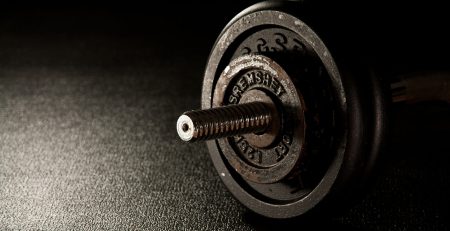Do BCAAs make losing weight easier?
BCAAs and Weight Loss
One of the main alleged benefits of BCAA supplements is their ability to make weight loss more efficient. BCAAs are supposed to maintain muscle mass during weight loss, keep you out of a catabolic state, and give you energy during fasted cardio sessions. Let’s see whether the research backs up this claim.
What does the research say about BCAAs and weight loss?
Study 1: In a single-blind, matched group design: branched-chain amino acid supplementation and resistance training maintains lean body mass during a caloric restricted diet1
This first study looked at how BCAAs affected weight loss. Researchers recruited 17 males and split them into a BCAA group and carbohydrate group. Researchers prescribed the subjects an 8 week body building style workout routine in conjunction with a calorie restricted diet. Both groups took their respective supplements before and after working out.
Over 8 weeks, the BCAA group lost body fat and maintained muscle mass while the carbohydrate group lost muscle mass. Researchers concluded that BCAA supplements taken during dieting could preserve muscle mass.
Study 2: Combined effects of caloric restriction and branched-chain amino acid supplementation on body composition and exercise performance in elite wrestlers2
This study compared the effects of calorie restriction with and without BCAAs on body weight and body fat in wrestlers. Twenty five wrestlers were split into two groups: 1) a calorie restricted diet with BCAAs, 2) a calorie restricted diet with low protein.
The results showed the BCAA group had significantly higher weight loss and fat loss than the low protein group. Researchers concluded that the combination of calorie restriction and BCAA supplementation led to significantly higher losses of body fat.
Study 3: Branched-chain amino acid supplementation during trekking at high altitude. The effects on loss of body mass, body composition, and muscle power3
The final study looked at the effects of BCAA supplementation on body weight and composition after high altitude trekking. The study split 16 subjects into two groups. One group took a BCAA supplement while the other group took a placebo. Both groups saw a significant decrease in body weight. The BCAA group saw a bigger decrease in fat loss and significantly increased their muscle mass. The placebo group saw no change in muscle mass.
What does this research mean? Can BCAAs help me lose weight?
While the research seems pretty positive on the relationship between BCAA intake and better weight loss results, if you look closer into the studies, you’ll start to see why some of these results do not have practical benefits for many of us. The first study shows up a lot in this BCAA series and the same problem is highlighted each time. Yes, the BCAA group saw better weight loss, but the researchers compared BCAAs to a carbohydrate supplement. If you’re trying to lose weight, you’re most likely going to take a protein supplement after a workout, not one solely made out of carbs.
The second study had the same issue. They compared a BCAA supplement to a low protein diet. Recent research has actually shown high protein diets have beneficial effects on calorie restriction. A low protein diet is not the optimal way to successful weight loss.
These studies did not compare BCAA supplementation to protein supplementation. This makes it difficult to say whether or not BCAAs have additional benefits over regular protein intake during a calorie deficit. There is research on protein’s ability to enhance weight loss results. Two other studies found a high protein diet was able to maintain lean body mass better than a lower protein diet during periods of calorie restriction4.
The Bottom Line – Should I take BCAAs during a diet?
If you look at all the evidence, BCAAs probably do not offer any benefits to weight loss when compared to other sources of whole protein (whey, casein, maybe even soy). If your choice after a workout, or between meals, is BCAAs or nothing, BCAAs would provide benefits. However, like many of the other claims, the evidence shows BCAAs do not provide many benefits when compared to consuming other protein supplements.
References
- Dudgeon, W. D., & Kelley, E. P. (2016). In a single-blind, matched group design: Branched-chain amino acid supplementation and resistance training maintains lean body mass during a caloric restricted diet. Journal of the International Society of Sports Nutrition, 13(1). doi:10.1186/s12970-015-0112-9
-
Mourier, A., & Bigard, A. (1997). Combined Effects of Caloric Restriction and Branched-Chain Amino Acid Supplementation on Body Composition and Exercise Performance in Elite Wrestlers. International Journal of Sports Medicine, 18(01), 47-55. doi:10.1055/s-2007-972594
-
Schena, F., & Guerrini, F. (1993). Branched-chain amino acid supplementation during trekking at high altitude. European Journal of Applied Physiology and Occupational Physiology, 67(1), 94-95. doi:10.1007/bf00377713
- Mettler, S., & Mitchell, N. (2010). Increased Protein Intake Reduces Lean Body Mass Loss during Weight Loss in Athletes. Medicine & Science in Sports & Exercise, 42(2), 326-337. doi:10.1249/mss.0b013e3181b2ef8e
-
Pasiakos, S. M., & Cao, J. J. (2013). Effects of high-protein diets on fat-free mass and muscle protein synthesis following weight loss: A randomized controlled trial. The FASEB Journal, 27(9), 3837-3847. doi:10.1096/fj.13-230227









